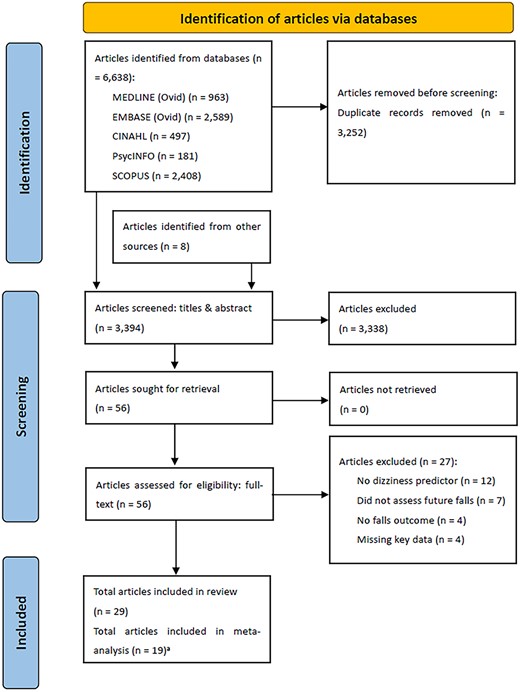2024-09-19 インペリアル・カレッジ・ロンドン(ICL)
<関連情報>
- https://www.imperial.ac.uk/news/256294/dizziness-older-adults-linked-higher-risk/
- https://academic.oup.com/ageing/article/53/9/afae177/7759636
高齢者におけるめまいと将来の転倒および転倒関連傷害との関連:系統的レビューおよびメタ解析 Association between dizziness and future falls and fall-related injuries in older adults: a systematic review and meta-analysis
Yuxiao Li, Rebecca M Smith, Susan L Whitney, Barry M Seemungal, Toby J Ellmers
Age and Ageing Published:19 September 2024
DOI:https://doi.org/10.1093/ageing/afae177

Abstract
Background
Dizziness is common in older adults, especially in those attending falls services. Yet, the extent to which dizziness is associated with future falls has not been reviewed. This systematic review and meta-analysis assessed the association between dizziness and future falls and related injuries in older adults.
Methods
EMBASE, CINAHL Plus, SCOPUS and PsycINFO databases were searched from inception to 5 February 2024. The review was registered on PROSPERO (registration ID: CRD42022371839). Meta-analyses were conducted for the associations of dizziness with future falls (including recurrent and injurious falls). Three meta-analyses were performed on different outcomes: any-type falls (≥1 falls), recurrent falls (≥2 falls) and injurious falls.
Results
Twenty-nine articles were included in the systematic review (N = 103 306 participants). In a meta-analysis of 14 articles (N = 46 795 participants), dizziness was associated with significantly higher odds of any-type future falls (OR = 1.63, 95% CI = 1.44–1.84). In another meta-analysis involving seven articles (N = 5630 participants), individuals with dizziness also had significantly higher odds of future recurrent falls (OR = 1.98, 95% CI = 1.62–2.42). For both meta-analyses, significant overall associations were observed even when adjusted for important confounding variables. In contrast, a meta-analysis (three articles, N = 46 631 participants) revealed a lack of significant association between dizziness and future injurious falls (OR = 1.12, 95% CI = 0.87–1.45).
Conclusions
Dizziness is an independent predictor of future falls in older adults. These findings emphasise the importance of recognising dizziness as a risk factor for falls and implementing appropriate interventions.


